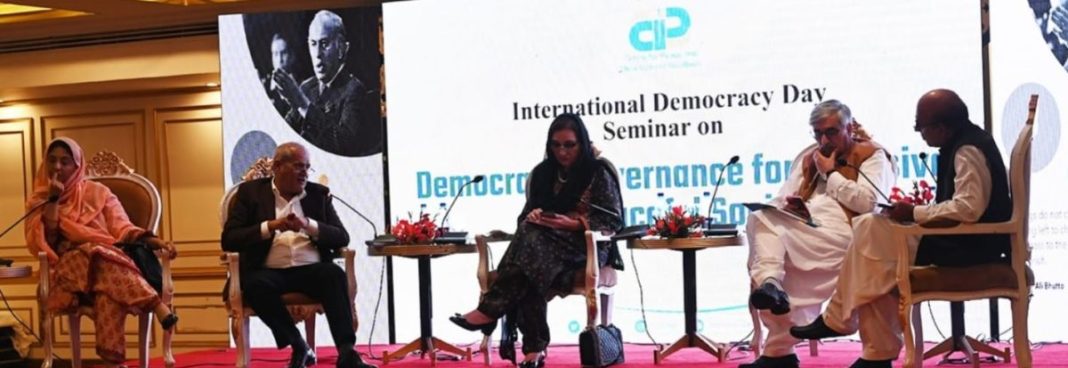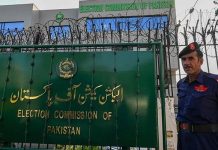By Asim Hussain
ISLAMABAD: The speakers at a seminar on democratic governance on Thursday said a paradigm shift based on reforms and rapprochement among the institutions forming the political system to strengthen democracy was a must to save the country from irrevocable crises.
The Centre for Peace and Development Initiatives (CPDI) organised a one-day seminar on “Democratic Governance for Peaceful and Inclusive Societies” which was held in connection with the upcoming International Day of Democracy. Professor of Political Science, LUMS, Dr Muhammad Waseem in his keynote address said there was a clash of institutions in the administrative troika that had weakened the Parliament whereas the latter was a microcosm of a society in different countries.
He added that the elected representatives in the Parliament reflected the society who were weaker and hence, the Parliament was becoming weak in the aftermath. He regretted that the outgoing parliament led by the coalition government had passed an unprecedented number of bills in the shortest span of time which was horrendous as it left the lawmaking body inefficient in dispensing its duties. Prof. Dr Waseem underlined that the process of electing representatives had shifted to the electable that belonged to the traditional elite symbolising the status quo.
He pointed out that the non-permanent parliament (in terms of tenure) was working along a permanent bureaucracy that left the legislator toothless, hence comprising its service delivery that was termed governance in the democratic system. He added that poor governance and weaker political institutions allowed non-democratic actors to intervene which was detrimental to democracy.
During the panel discussion titled Democratic Governance and Peace in Pakistan, CEO Vision 2047, Zafar Ullah Khan said the previous regime of coalition parties tried to establish weak impediments through legislation against the Constitution that brewed the prevailing constitutional crisis.
He mentioned that the prevailing political scenario did not conform with the demography of the country. “We need to be pragmatic and realistic in our approach to promote democracy. I am hopeful that the citizens of Pakistan will reclaim their democracy whereas institutional reforms could help Parliament to reclaim its position.” Former Parliamentary Secretary for Law and Justice, Mehnaz Akbar Aziz said the role and representation of women parliamentarians was important as the situation had transitioned from mere representation to their performance in the Parliament.
She said there was a need for reorganisation of the political parties to ensure women’s inclusion at important decision-making fora like the National Security Council where they lacked representation. She opined that youth engagement and listening to their demands was crucial to ensure inclusive and informed policymaking.
Mehnaz Akbar Aziz added that the absence of local governments was also an impediment to the flourishing democracy in the country which needed to be reformed on modern lines. President, PILDAT Ahmed Bilal Mehboob said at present there was a hybrid system prevailing in the country that comprised of democratic and non-democratic forces which was making democracy weaker in the country by every passing day.
He was of the view that in order to put an end to the prevailing uncertainty and political deterioration it was important to abolish this hybrid system and implement a pure democratic system with the input of the masses. Senator Sana Jamali was of the view that there was no other solution than democracy for the country’s prevailing challenges as growing political intolerance, unemployment and economic crunch were scaling up at an alarming pace. In his concluding remarks, Secretary General, HRCP, Harris Khalique said the country needed constitutional amendments and major reforms in key national institutions to ensure the inclusive strengthening of democracy in the country. Earlier Executive Director, CPDI, Mukhtar Ahmed Ali delivered his welcome note and moderated the panel discussion.




